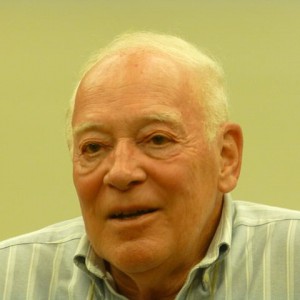50 Years of Church-State Separation in Public Schools: An Interview with First Amendment Champion Ellery Schempp

This week marks the 50th anniversary of the U.S. Supreme Court decision that ended school-sponsored Bible readings in public schools. Abington School District v. Schempp successfully challenged a Pennsylvania law that required a daily reading of the Bible in public schools. The 8-1 ruling in the case, which was combined with a similar challenge by Madalyn Murray O’Hair and the Baltimore, Maryland, public schools, is one of many in a continuing battle to support the church-state separation principle in our Constitution.
Ellery Schempp, the high school student whose parents brought the original case on his behalf, continues to be an activist for church-state separation. In 2012, he showed up to support Jessica Ahlquist in her successful court fight to remove a prayer banner from her Cranston, Rhode Island, high school. (You can hear an interview with him on a 2012 episode of the AHA’s podcast, The Humanist Hour, here.) He also speaks regularly to humanist and secular groups across the country. He wrote an article for HNN last year for the 50th anniversary of another important church-separation case, Engel v. Vitale, a Supreme Court decision that ended school-sponsored prayers in public schools.
We caught up with Schempp during his current travels marking the 50th anniversary of the ruling in his case, and he was kind enough to answer a few questions for us.
HNN: From what you’ve seen since the 1963 court decision, including recent developments in the area of church-state separation, are you optimistic about our future?
Schempp: We know that the U.S. has gone through periods of religious fervor in the past, the “Great Awakenings” as described by historians. They waxed and waned. The present fervor will wane, too. The good signs are that many Americans have become skeptical of organized religion, and that some 20% of us now are open about being non-believers, non-theists, atheists, humanists; and more who come from non-Christian traditions.
I am optimistic; I see younger folks in high school and colleges rejecting conventional beliefs and being more open to the values and ethics of Humanism. Our friends at the Secular Student Alliance are doing marvelous work.
The old guard, of course, has its vested interests–preachers and priests who get their income and influence from the faithful. The greatest threat at this time is the Catholic Church’s argument that they should be exempt from laws that benefit all of society, just because of their doctrines. This is not about religious liberty; it is about an ecclesiastic group that wants to impose their doctrines on everybody else. I note that bishops take no oath to support our Constitution and refuse to pay taxes for the community services they receive.
I am very fond of this quote from Engel [v. Vitale]: “It is no part of the business of government to be composing prayers.” We need to remember this whenever prayers at school board/city councils come up: Is this the business of government?
HNN: What differences, if any, have you noticed about how you were treated as a student standing up for church-state separation and the way students who do the same are treated today?
Schempp: There is a much greater acceptance of differences, dissidents, than in 1956-1963 in schools. There is less name-calling, picking on a kid for being an ethnic minority, less bullying. Schools are doing good to promote tolerance. In 1956 when I was in high school, every dissenting view was labeled as “communist” and “evil.” I think the Engel [v. Vitale], Abington [School District v. Schempp], [Lee v.] Weissman cases and many others have provided a foundation that protects kids from authority figures as they quest for their own beliefs.
Many students have come to notice the disconnect between public displays of piety and ethical behavior.
HNN: What would you have done differently, if anything, in the decisions you made while your case was moving forward?
Schempp: I guess my objective was to de-throne the Bible, that is, to show that there were many other “sacred” texts and traditions; the Bible (in its many varieties, King James, Catholic Douay-Rheims, countless other translations) was not uniquely “the word of god.” And to allow science and evidence to shine through. I might have made this point stronger.
Also, at the time I did not consider myself an atheist. I do now. My view is that whether god exists or not is irrelevant. I do not see anything in my understandings of my existence or the way the universe works as needing a “god-did-it” explanation (which is meaningless).
I do recall an interview with my mother where she says, “We are not atheists; we are Unitarians.” This is amusing to me on several levels.
